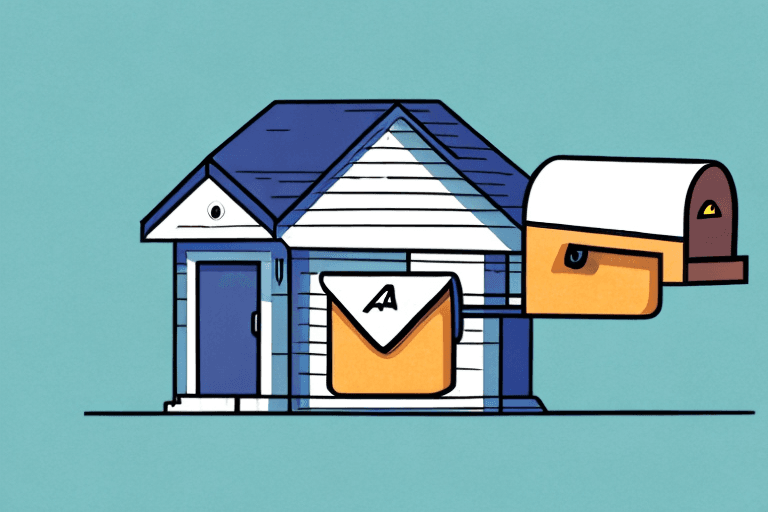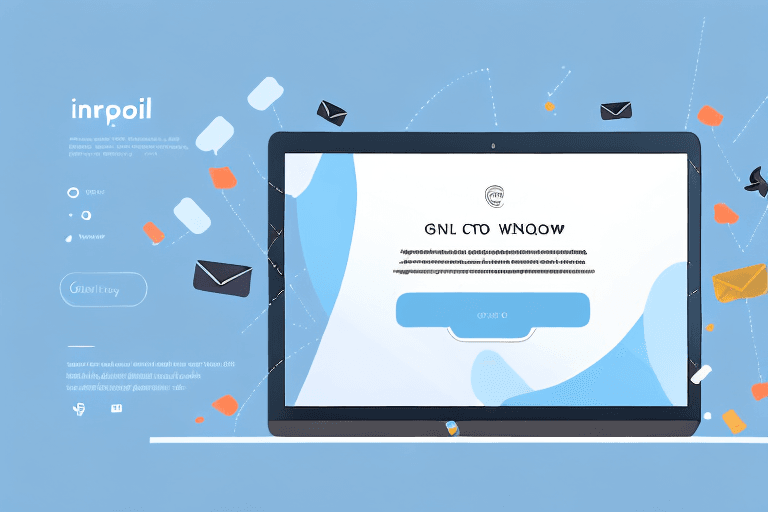In today's world, email marketing is one of the most effective ways to reach potential customers. This is no different in the real estate industry, where it is increasingly common to use email to connect with potential buyers and sellers. Despite its importance, however, many real estate agents struggle to create effective email templates that capture the attention of their audience and achieve their goals. In this article, we will discuss the importance of email marketing for real estate agents, building a strong email list, crafting a compelling subject line, structuring your real estate email template, and the types of real estate email templates you can use to achieve your objectives.
Understanding the Importance of Email Marketing in Real Estate
Real estate agents are always looking for ways to connect with potential buyers and sellers. One of the most effective ways to do this is through email marketing. Email marketing is a cost-effective and efficient way to communicate directly with your target audience. It allows you to build relationships with potential clients, keep your existing clients informed about the real estate market, and promote your services.
Email marketing is an essential component of any real estate agent's marketing strategy. It enables you to track and analyze data, refine your marketing strategy, and make better decisions about advertising spend. The benefits of email marketing are clear, but to be effective, you need to build a strong email list.
Benefits of Email Marketing for Real Estate Agents
The benefits of email marketing for real estate agents are numerous. Some of the key advantages include:
- Direct communication with potential buyers and sellers: Email marketing allows you to communicate directly with your target audience. You can tailor your messages to their specific needs and interests, which can increase engagement and lead to more sales.
- Cost-effective marketing: Email marketing is one of the most cost-effective marketing strategies available. You can reach a large audience with minimal investment, which can help you save money on advertising.
- Increased engagement with your target audience: Email marketing allows you to engage with your target audience in a more personal way. You can use email to provide valuable information, answer questions, and build relationships with potential clients.
- Ability to track and analyze email marketing data: Email marketing provides valuable data that can help you refine your marketing strategy. You can track open rates, click-through rates, and other metrics to see what's working and what's not.
- Opportunity to build long-term relationships with clients: Email marketing allows you to stay in touch with your existing clients and build long-term relationships. By providing valuable information and staying top-of-mind, you can increase the likelihood of repeat business and referrals.
Building a Strong Email List
A strong email list is the foundation of any successful email marketing campaign. It is crucial to build a list of people who are genuinely interested in your services and who have given you permission to communicate with them via email. There are several ways to build your email list:
- Offer a value proposition: Provide free content, such as e-books or white papers, in exchange for contact information. This can help you attract people who are genuinely interested in your services and who are more likely to engage with your emails.
- Use opt-in forms on your website: Place opt-in forms throughout your website and make it easy for visitors to sign up. You can also use pop-ups and other tools to encourage sign-ups.
- Networking events: Attend networking events and collect business cards and contact information from people you meet. This can help you build a list of people who are interested in your services and who may be more likely to engage with your emails.
- Referrals: Encourage your existing clients to refer you to their friends and family, and collect contact information for these referrals. This can help you build a list of people who are already familiar with your services and who may be more likely to engage with your emails.
By building a strong email list and using email marketing effectively, you can connect with potential buyers and sellers, build relationships with clients, and grow your real estate business.
Crafting a Compelling Subject Line
The subject line is one of the most important aspects of your email template. It is the first thing your audience will see and can determine whether they open your email or not. A compelling subject line should be attention-grabbing, concise, and relevant to your audience. Here are some tips for writing a great subject line:
Tips for Writing Attention-Grabbing Subject Lines
Writing a subject line that grabs the attention of your audience can be challenging, but it's essential for the success of your email marketing campaigns. Here are some tips to help you write an attention-grabbing subject line:
- Personalize the subject line: Using the recipient's name or other personalized information can make the email feel more tailored to them. Personalization can increase the open rate of your emails significantly.
- Create a sense of urgency: Using phrases like "limited time offer" or "act now" can create urgency and encourage immediate action. Urgency can prompt your audience to open your email and take the desired action.
- Pose a question: Asking a compelling question that makes the recipient curious to learn more can increase the open rate of your emails. Questions can pique the interest of your audience and make them want to know more.
- Keep it short: The subject line should be no more than 50 characters to ensure it displays correctly on all devices. A concise subject line can convey the message effectively and increase the chances of your email being opened.
Examples of Effective Real Estate Subject Lines
Real estate is a competitive industry, and crafting an effective subject line can make all the difference in your email marketing campaigns. Here are some examples of effective real estate subject lines:
- Looking for your dream home? Check out our new listings! - This subject line is personalized and creates a sense of urgency by using the word "dream" and "new listings."
- Exclusive invitation: Open house this weekend only! - This subject line creates a sense of exclusivity and urgency by using the words "exclusive" and "this weekend only."
- Is now the time to sell? Read our latest real estate market update. - This subject line poses a question and provides value to the reader by offering a real estate market update.
- Success story: How we helped secure our clients' dream home. - This subject line is personalized and creates a sense of curiosity by using the words "success story" and "dream home."
Remember, a compelling subject line can make all the difference in the success of your email marketing campaigns. Use these tips and examples to craft subject lines that grab the attention of your audience and increase the open rate of your emails.
Structuring Your Real Estate Email Template
Now that you have a strong email list and a compelling subject line, it is time to structure your real estate email template. An effective email should be easy to read, visually appealing, and should include a clear call-to-action. Here is a recommended structure for your real estate email:
Introduction and Personalization
Start your email with a warm greeting and personalize it with the recipient's name or any other relevant information you have. This sets a positive tone and makes the email feel more personalized.
Property Highlights and Visuals
Include high-quality visuals of the property you are promoting, including images of the interior, exterior, and any unique features. It is also important to include a brief description of the property and its main selling points.
Call-to-Action and Contact Information
Your call-to-action should be clear and should encourage the recipient to take action, such as booking a viewing or contacting you for more information. It is also important to include your contact information, including your phone number, email address, and website.
Types of Real Estate Email Templates
There are several types of real estate email templates you can use to achieve your objectives. Here are some examples:
Property Listing Announcements
Announce new property listings to your email list and include all the relevant details about the property. Include high-quality visuals and a clear call-to-action to encourage recipients to book a viewing or get in touch.
Open House Invitations
Invite your email list to an open house and provide all the necessary details, such as the time, location, and date. Encourage them to RSVP and share the invitation with their networks.
Market Updates and Newsletters
Share updates about the real estate market and provide useful information to your email list. This can include tips for buyers and sellers, information about local developments, and news about the industry.
Client Testimonials and Success Stories
Share success stories about your clients and include testimonials to build credibility and trust with your email list. This helps to position you as a trusted and effective real estate agent.
In conclusion, creating an effective real estate email template is critical to achieving your marketing objectives. By understanding the importance of email marketing, building a strong email list, crafting a compelling subject line, and structuring your real estate email template, you can create emails that capture the attention of your audience and drive results. Use the types of real estate email templates we've outlined to achieve your goals and build a successful real estate business.




